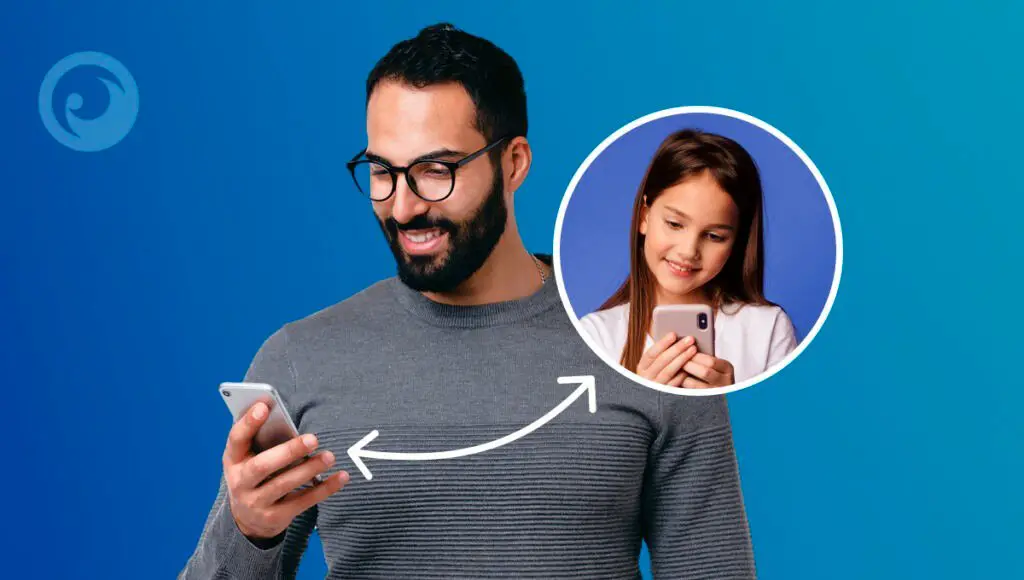Tech
How To Stop Someone From Mirroring Your Phone?
Published
1 year agoon
By
Jack
Privacy is more important than the rest of things. It varies on the individual what is important for them but yes, privacy is important.
Our phones contain many personal and sensitive details like contacts, photos, location data, login credentials, and more, Mass deleting emails on Gmail can also help protect your privacy by removing sensitive communication trails.
One threat to your privacy is phone mirroring. It allows someone to mirror your phone and can view everything from your device. We all want to stay safe from these kinds of threats so Here’s how to stop phone mirroring and protect your privacy.
Table of Contents
ToggleWhat Is Phone Mirroring?
Phone mirroring, also called phone cloning, is when an unauthorized person can view and control your phone remotely. They install spyware or hacking tools that essentially make your phone into a two-way mirror.
The hacker can see everything you do on your device – apps opened, websites visited, texts sent, photos accessed – without you knowing. Some mirroring apps even allow controlling your phone’s camera or microphone.
How Does Phone Mirroring Work?
For a hacker to mirror your phone, they first need physical access to install spyware. This could happen if you leave your phone solitary or lend it to someone else.
Once the malware is installed, the hacker can access your phone’s contents and activity remotely using all these:
- Keylogging: Records keys pressed to collect passwords and other sensitive info
- Screen recording: Takes screenshots and records video of your screen
- Remote access: Allows full control over your phone’s functions
The hacking tools run silently in the background without your knowledge. The hacker just needs your phone’s ID number to sync and view everything on your device from their phone or computer.
Signs Your Phone Is Being Mirrored
If you suspect someone has installed spyware on your phone, watch for these signs of mirroring:
- Decreased battery life and performance: Spyware uses computing resources
- Strange activity when not using the phone: Apps opening randomly or screen turning on
- Unfamiliar apps: Check for unknown apps running services or allowing remote access
- Overheating: Constant surveillance uses extensive device resources
- Pop-up ads: Adware spyware shows intrusive ads
You may also notice money missing from accounts, sensitive information leaked, or your camera activating unexpectedly – all signs your activity is being monitored.
Dangers Of Phone Mirroring
Phone mirroring essentially provides a hacker with complete access to spy on your digital life. It’s crucial to take steps to detect and stop any unauthorized surveillance
- Account hacking: Login credentials, passwords, and financial info stolen
- Identity theft: Personal and sensitive data used for fraud
- Stalking and harassment: Abusive individuals tracking your location/activity
- Blackmail: Private photos, messages, or browsing history used as leverage
- Unsolicited ads: Spyware tracks activity for targeted mobile ads
How To Prevent Phone Mirroring
Protecting your phone from mirroring starts with smart habits:
- Strong passcode: Use a PIN, pattern, or password to lock your phone
- Update software: Maintain the latest OS and security patches
- Review app permissions: Don’t allow unnecessary access to contacts, camera, etc
- Avoid public USB charging: Only use personal chargers and cables
- Delete suspicious texts: Don’t click links from unknown numbers
- Clear browser history: Remove browsing trails frequently
You should also limit who handles your phone physically. Only install apps from trusted sources like the official app store.
Detecting Spyware On Your Phone
If you think your phone may already be compromised, here are steps to find spyware:
- Scan with antivirus software: Run a deep malware scan on your device
- Check app permissions: Look for any unfamiliar apps with intrusive permissions
- Monitor data usage: Spyware can consume more background mobile data
- Factory reset: Wipes all content and apps as a last resort
Signs of decreased performance, overheating, or abnormal battery drain could indicate resource-intensive surveillance software running behind the scenes.
How To Stop And Remove Phone Mirroring
If you confirm spyware on your device, take these steps to disable it:
Enter Airplane Mode
Airplane mode disconnects internet access to stop any remote monitoring. The hacker can no longer view your activity in real-time.
Run Antivirus Scan
Use a trusted mobile antivirus app to detect and remove any rogue apps or malware. Delete any suspicious programs.
Reset All Passwords
Change the passwords on all your online accounts accessed by the compromised phone. Enable two-factor authentication where possible.
Factory Reset Your Phone
As a last resort, wipe your phone completely. Backup data first, then choose full factory reset under your device settings. Reinstall apps from official sources.
Protect Your Browsing and Privacy
Once your phone is clean, keep your browsing and activity private moving forward:
- Use a VPN: Using a VPN offers several advantages, especially when it comes to downloading movies. It enhances your online privacy by masking your IP address, making it harder for others to trace your activities, including your downloads.
Additionally, it allows you to bypass geo-restrictions, accessing movies and content that might not be available in your region. Moreover, downloading movies with VPN from various sources, ensures your online presence and personal data remain protected.
- Enable private browsing: Prevents browsers from saving history
- Limit tracking permissions: Opt out of targeted advertising where possible
- Clear cookies and cache: Removes browsing trails and temporary files
- Use anonymous search engines: DuckDuckGo instead of Google
Stay vigilant about keeping your phone secure. Don’t download random apps or click suspicious links. Maintain strong passwords and monitor your online accounts for any unauthorized access. With smart habits, you can avoid phone mirroring threats.
What Are The Risks Of Phone Mirroring?
Phone mirroring puts you at risk of stalking, identity theft, account hacking, blackmail, and other invasions of privacy if a hacker can view your activity remotely.
What Are Signs My Phone Is Being Spied On?
Decreased performance, overheating, abnormal battery drain, pop-ups, random activity when idle, and unfamiliar apps appearing can all indicate spyware.
Can Factory Reset Remove Spyware?
Yes, a full factory reset will wipe all content and apps from your phone, removing any spyware in the process.
Does Aeroplane Mode Stop Mirroring?
Entering airplane mode disconnects internet access on your phone, preventing remote viewing of your activity in real time.
How can I browse privately and avoid tracking?
Using a VPN, private browsing, anonymous search engines, limiting tracking permissions, and clearing cache/cookies will help you browse privately and avoid surveillance.
Conclusion
preventing someone from mirroring your phone is crucial for safeguarding your privacy and personal data.
By implementing the recommended security measures, such as enabling screen lock and regularly reviewing your connected devices, you can minimize the risk of unauthorized mirroring.
Staying vigilant and informed about potential vulnerabilities is key to maintaining control over your device and protecting your sensitive information from unwanted access.
Author

